International Estate Planning
International estate planning is a specialized area of law that focuses on the complexities of planning estates when assets or beneficiaries are located in multiple countries. It involves creating a comprehensive strategy that considers the legal, financial, and tax implications of transferring assets across international borders.
International estate planning is advisable for families with assets, beneficiaries, or residences in multiple countries. This ensures that their assets are managed and distributed according to their wishes while minimizing potential legal disputes and tax liabilities.
In our interconnected world, many families have ties that span across different countries. This situation creates unique challenges for estate planning, as laws regarding wills, probate, trusts, and taxation can vary significantly from one country to another.
International estate planning differs significantly from domestic estate planning, as it involves multiple jurisdictions and legal systems. While domestic estate planning focuses on the laws and regulations of a single country, international estate planning must navigate the complexities of various legal systems, tax laws, and cultural contexts in different countries. International estate planning ensures effective administration in accordance with the laws of relevant jurisdictions.
Several factors are critical in international estate planning. Failing to consider these elements can lead to unintended consequences, such as increased tax liabilities or legal challenges during estate administration. These are:
1) Domicile
Domicile refers to an individual's permanent legal residence and is crucial in determining which jurisdiction's laws will govern the distribution of their estate. Establishing domicile can be a complex process, especially for individuals who have resided in multiple countries.
2) International Tax Treaties
International tax treaties are agreements between countries aimed at preventing the double taxation of estates. These agreements are designed to offer exemptions or tax credits for taxes paid in one country, thereby reducing the overall tax liability on the estate.
International estate planning can help minimize global tax burdens by strategically utilizing international tax agreements. For instance, consider a situation where an individual is a citizen of one country but owns property in another. Without proper planning, their estate might face taxation in both countries. However, an international estate plan can leverage tax treaties between the two nations to potentially reduce or eliminate double taxation. This may involve strategies such as establishing trusts in tax-advantaged jurisdictions or using foreign tax credits to offset taxes paid in one country against those owed in another.
3) Situs
The legal jurisdiction of an asset is determined by its situs, which refers to its location. For example, real estate is governed by the laws of the country where it is situated, regardless of where the owner resides. The concept of situs, therefore, plays a significant role in international estate planning.
-------------------------------
International estate planning is crucial for ensuring the financial security of family members in different countries. For example, if a family owns assets in multiple jurisdictions, a lack of a proper international estate plan could lead to complications. Conflicting laws and regulations might affect the distribution of those assets, potentially resulting in delays, disputes, and financial losses for the beneficiaries. A well-structured international estate plan can help address these challenges by clearly outlining how assets should be distributed while considering the laws of each relevant jurisdiction.
International estate planning plays a vital role in protecting assets from potential legal claims or creditors in different countries. For instance, if an individual has business interests in a country with a high risk of lawsuits, effective international estate planning can help organize their assets to shield them from legal actions or creditors in that region. This process may involve establishing trusts or other legal entities in countries that have strong asset protection laws.
International estate planning is essential for streamlining estate administration across borders and potentially lowering estate taxes. If a person's estate includes assets in multiple countries, the probate process can become complicated and time-consuming, requiring separate procedures in each jurisdiction.
An effective international estate plan can simplify this process by designating a single executor or trustee to manage the entire estate, regardless of where the assets are located. Strategies such as setting up trusts or joint ownership arrangements can enable direct transfers of assets to beneficiaries, thereby bypassing probate in one or more jurisdictions. This approach can help reduce costs to the beneficiaries.
International estate planning plays an important role in maintaining privacy and confidentiality regarding finances across different countries. For example, if someone wishes to keep their financial matters private from their family or the public, an international estate plan can utilize tools such as trusts to securely hold assets while ensuring confidentiality.
A will is a legal document that outlines how you want your money and property to be distributed after your death. While it is possible to create a single will that covers assets in multiple countries, it is often more effective to have separate wills for each jurisdiction where you hold significant assets. For instance, you might have one will for your assets in your home country and others for assets in foreign countries. This approach can help avoid potential legal conflicts and ensure that your assets are distributed according to your wishes.
In an international estate plan, it is essential to have powers of attorney and healthcare directives that are valid in all relevant jurisdictions. This ensures that your wishes are respected if you become too ill to make decisions while in another country.
International estate planning often involves complex tax considerations. There are several strategies that can help minimize estate taxes. These strategies include leveraging tax treaties—agreements between countries that reduce double taxation—making lifetime gifts to beneficiaries to decrease the size of the taxable estate, and establishing trusts to hold and distribute assets to beneficiaries in a tax-advantageous manner.
International estate planning can be complex due to the differing laws and regulations across countries. For instance, if someone owns property in both the US and France, they will face variations in legal systems. The US follows a common law system, while France operates under a civil law system. These distinct legal traditions can lead to conflicting rules concerning inheritance, estate taxes, and property ownership.
In most civil law jurisdictions within the European Union, there is a mandatory forced heirship regime. This means that a person's spouse, children, and other family members are entitled to a set share of an individual’s estate, regardless of the stipulations in that person’s will. However, in certain circumstances, individuals may be able to opt out of forced heirship rules through careful international estate planning.
When planning an international estate, it's crucial to consider the effects of currency fluctuations and exchange controls. If an estate includes assets in various currencies, changes in exchange rates can impact both the overall value of the estate and the amount received by beneficiaries. Additionally, some countries impose exchange controls that restrict the transfer of funds across borders. These controls can complicate the process of transferring inheritances to beneficiaries in other countries, potentially resulting in delays and extra costs during the settlement process.
Cross-border families often face complicated reporting requirements related to their international estates. For instance, individuals with foreign bank accounts or financial assets may need to fulfill specific reporting obligations in both their country of residence and in the countries where the assets or accounts are located. Failing to meet these requirements can result in penalties and legal issues. Effectively navigating these intricate rules requires careful record-keeping and a thorough understanding of the reporting obligations in each relevant jurisdiction.
It is important to include provisions in an international estate plan that address the management and distribution of digital assets, including online accounts, cryptocurrencies, and domain names. Doing so ensures that an individual’s executors or heirs can access these assets.
Countries have different laws regarding property ownership, inheritance, and sales. For example, some countries may restrict foreign ownership of real estate or have specific procedures for transferring property after a person's death. These legal variations highlight the importance of understanding the rules in each jurisdiction to effectively manage and plan for the transfer of real estate holdings.
It is important to ensure that beneficiary designations on accounts and life insurance policies align with the will in order to create a cohesive estate plan. These documents should consider the legal systems of all relevant countries and should be reviewed regularly to account for any changes in laws or personal circumstances.
Various types of trusts can be tailored to suit the specific needs of international estate planning. These trusts not only facilitate a smooth transfer of assets but also address the unique tax implications that arise in different jurisdictions. A carefully structured trust can effectively manage and protect real estate located in a foreign country, all while minimizing the tax burden on the estate and its beneficiaries.
Financial assets, like bank accounts and investments, complicate international estate planning. Regulatory requirements, including reporting standards and controls on fund movement, can differ significantly, affecting how these assets are managed during a person's lifetime and after death. Additionally, strategic considerations such as currency risks, political stability, and the reliability of the financial system in each country where assets are held must be considered.
Managing compliance and reporting for international assets can be challenging. Legislation such as the Foreign Account Tax Compliance Act (FATCA) (in the US) and the Common Reporting Standard (CRS) (in Canada and the UK) impose strict requirements for reporting foreign financial accounts and assets. Noncompliance can result in significant penalties and complicate the administration of an estate. Estate owners must stay informed about these requirements and collaborate closely with their estate planning professionals to ensure that all necessary disclosures are made promptly and accurately.
We provide guidance on various aspects of wealth and corporate succession planning, including international wealth transfer, private trust company formation and operation, and the management of private foundations and charitable organizations. Our services also cover life insurance planning, leveraged asset planning, and representation for executors, trustees, and other fiduciaries.
An international estate plan requires regular attention and is not just a one-time effort. Due to possible changes in laws and personal circumstances, reviewing and updating the plan regularly is key to maintain its relevance and effectiveness.
Kramer International Law assists in structuring investments and navigating cross-border estate planning complexities.
Please book an appointment with us to learn more.






















